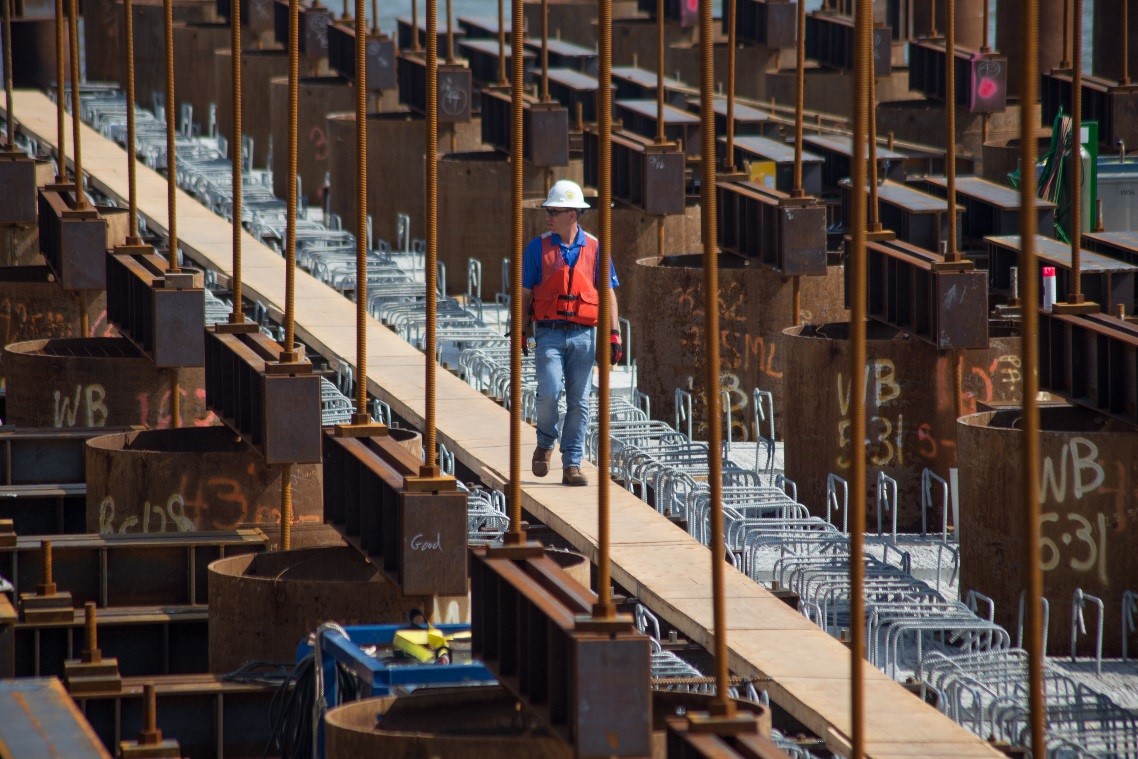
A labyrinth of steel is emerging out of the Hudson River. Above, a construction worker navigates across the formwork within a main span pile cap, which will support the new bridge’s 400-foot towers.
Two enormous structures with bases the size of football fields are rising out of the Hudson River at the New NY Bridge project site. These concrete monoliths are the pile caps that will act as the structural backbone for New York’s largest bridge and highway infrastructure project, distributing the weight of the bridge onto dozens of steel foundation piles.
The main span pile caps will support the bridge’s 400-foot towers, and require months of preparation to complete.

The main span pile caps consolidate the strength of dozens of pile caps into a single structure.
To construct these main span pile caps, steel pilings are first driven deep into the riverbed, reaching bedrock hundreds of feet below the surface. Once all the piles are in place, a series of concrete floor panels is pieced together around them, outlining the footprint of the pile cap as the supporting base for its concrete pour. The team then positions heavy steel panels precisely around the edge of this footprint to form a massive tub, which is sealed to be watertight and carefully lowered into the river to bring its base to the proper final level for the concrete pile cap.
Next, workers build the pile cap’s reinforcement system inside this lowered tub. The team installs high-strength steel reinforcement bars, called rebar, to closely-engineered dimensions within the form.
The project’s floating batch plants are then moved adjacent to the pile cap, and each form is filled with concrete specially formulated for long-term durability. The process continues over many hours until the entire footprint is covered with concrete to the specified depth. Once this steel-reinforced concrete hardens, the backbone of the new structure will have taken shape.
Learn more about how steel piles are transported to the project site, or installed with the well-being of local wildlife in mind.
